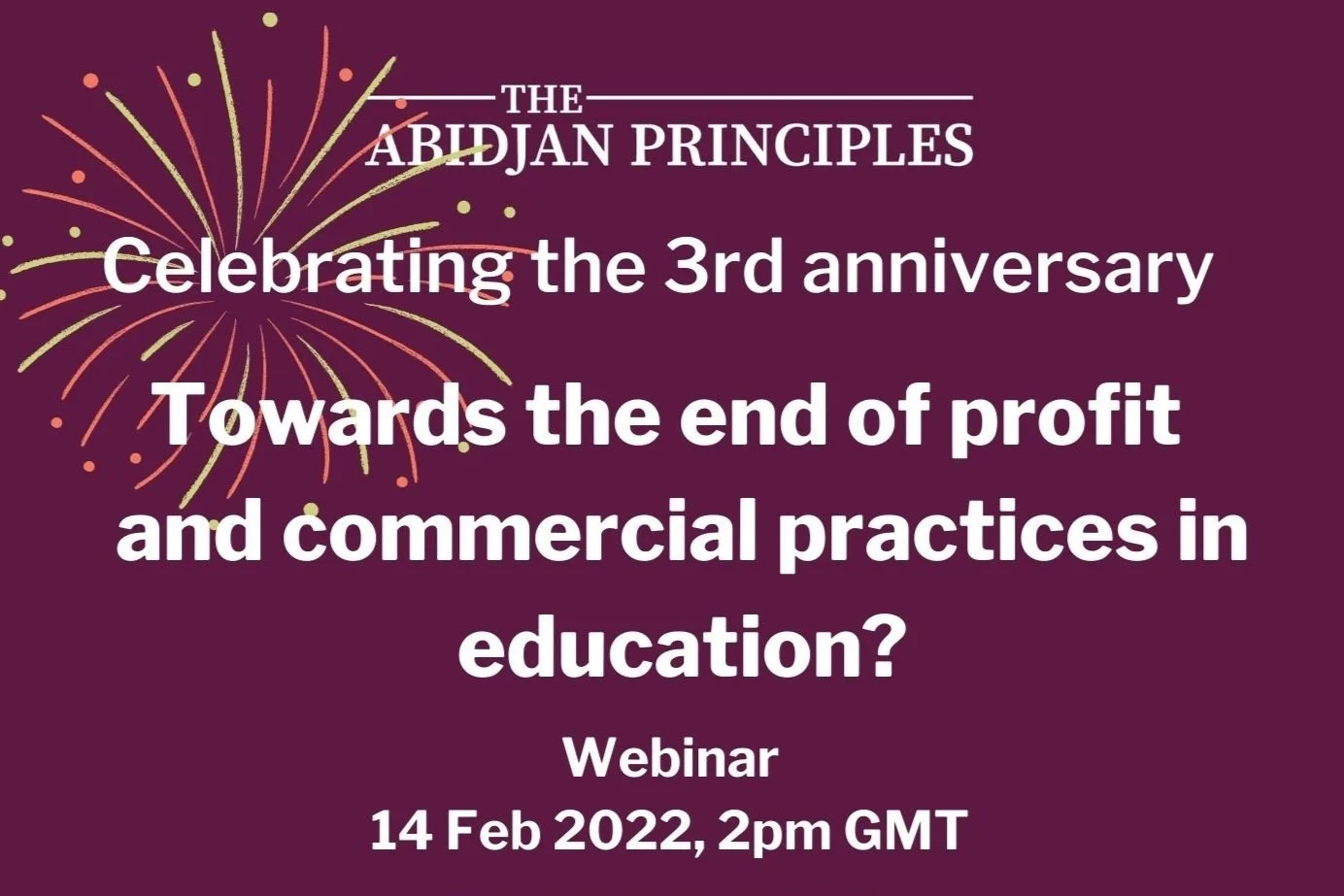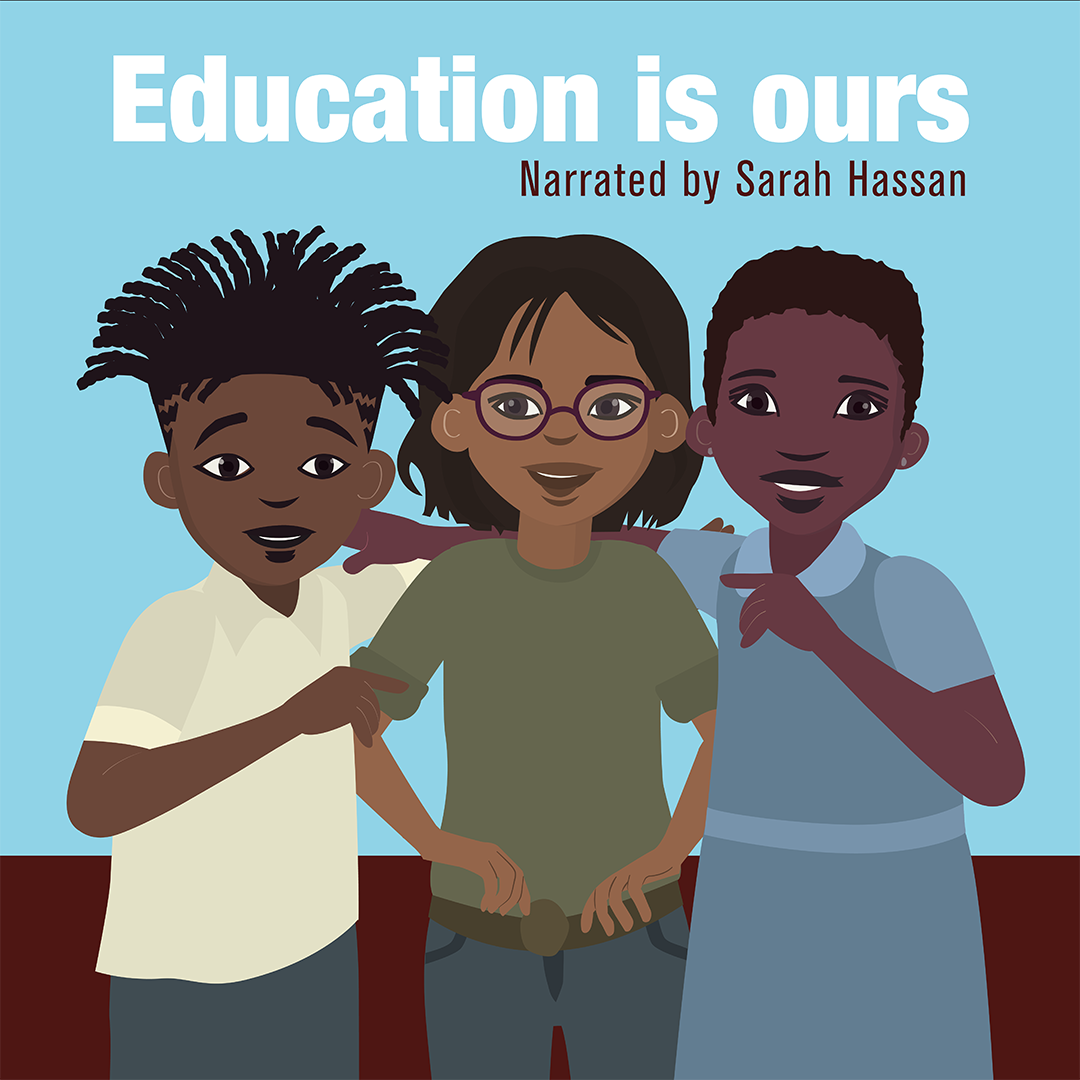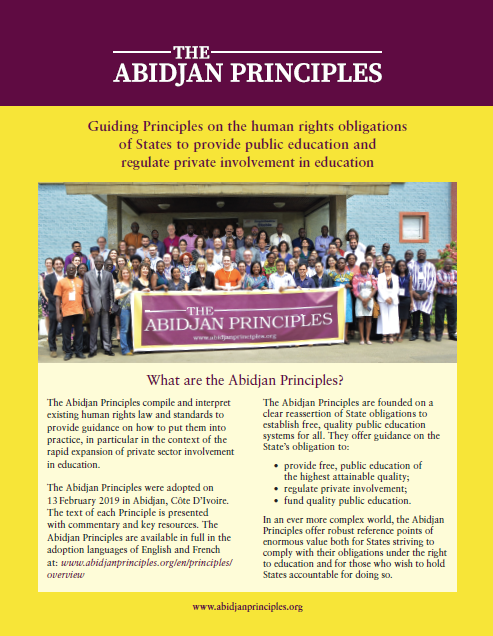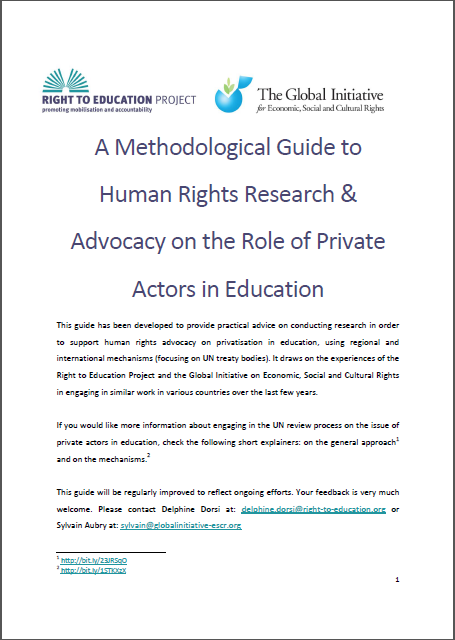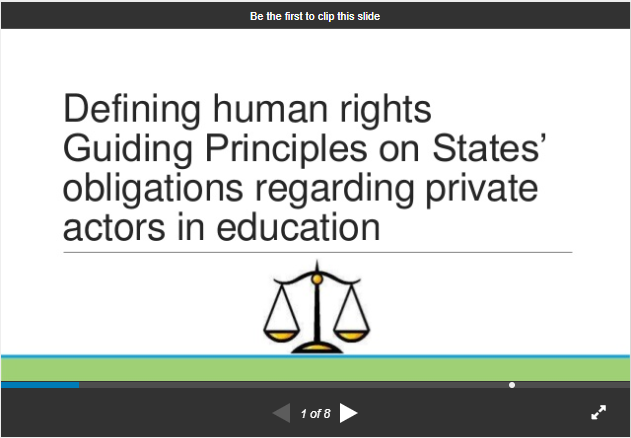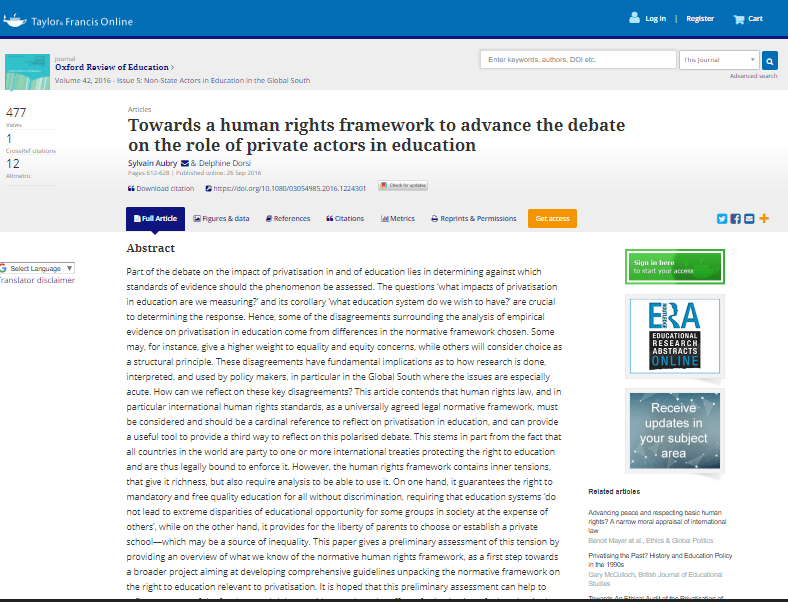Overview
The last two decades have seen a dramatic increase in scale and scope of non-state actors in education, particularly in developing countries. This privatisation in education includes not only an increase in the number of traditional private schools catering to the elite, but also the rapid expansion of low-cost profit-making schools targeting poor households, large-scale commercial investments in private school chains, private tutoring, privatisation of education services such as testing, the adoption of private sector management techniques in the public education sector, and the growth of community and faith-based schools. A crucial question is thus to determine, in each particular case, whether this involvement of private sector is acceptable or not.
However, what is still missing is a broadly accepted understanding of the normative framework against which to make this assessment. While there is an increasing and broad range of studies about private schooling, there is not yet a common understanding of what is ‘good’ and what is ‘bad’ in private provision from a social justice perspective, and a delineation of the responsibilities and duties of different actors in education.
It is for this reason that Abidjan Principles on the human rights obligations of States to provide public education and to regulate private involvement in education were developed by a group of experts between 2016 and 2019, and adopted on 13 February 2019. They have quickly been recognised worldwide and become a reference point for governments, educators and education providers in understanding their roles and duties in education.
Find out more on the Abidjan Principles website and access the Abidjan Principles in English, French and Arabic.
THE ABIDJAN PRINCIPLES IN A NUTSHELL
WHAT ARE THE ABIDJAN PRINCIPLES and how were they develooped?
The Abidjan Principles on the right to education is a landmark text that was adopted by 57 eminent experts from around the world in Cote d’Ivoire in February 2019, after a three-year consultative process, where hundreds of people from various constituencies gave an input into the text.
They consolidate in one text existing law on the right to education, applied to the contemporary context, and in particular the growth of privatisation in education. They compile the law from various sources, treaties, including jurisprudence from courts and international treaty bodies, and legal opinions.
They do not create new standards but provide guidance on existing ones. Therefore, they already apply to all countries, and do not need ratification or endorsement from governments.
They are a reference point for governments, educators and education providers in understanding their roles and duties in education.
They were drafted through an open, transparent, and broadly consultative process that included a variety of perspectives and reflected multiple contextual realities. From 2016 to 2018, a series of regional, national, and thematic consultations (see the timeline below) were convened around the world, concluding with an adoption conference in Abidjan, Côte d’Ivoire by a group of experts in February 2019. A secretariat made up of Amnesty International, the Equal Education Law Centre, the Global Initiative for Economic, Social, and Cultural Rights, the Initiative for Social and Economic Rights, and the Right to Education Initiative facilitated the consultative process.
WHY ARE THE ABIDJAN PRINCIPLES IMPORTANT AND HOW CAN THEY MAKE A DIFFERENCE?
The Abidjan Principles have been recognised by major human rights bodies, including by the three regional bodies in charge of economic, social and cultural rights (the African Commission on Human and Peoples’ Rights, Inter-American Commission on Human Rights, and the European Committee of Social Rights), as well as the Human Rights Council, the High Commissioner for Human Rights, and the U.N. Special Rapporteur on the right to education. They also have a strong academic legitimacy, given they were drafted and signed by the leading experts on the right to education and international human rights law, and published in full in the Human Rights Law Review.
They are a concrete tool to analyse and reflect on education policies. UNESCO is for instance developing a tool to develop and analyse education sector plans on the basis of the Abidjan Principles, and the U.N. Special Rapporteur on the right to education used them to analyse the Sustainable Development Goal 4 on education.
HOW CAN YOU USE THE ABIDJAN PRINCIPLES?
They can be used by a range of actors involved in education: policy-makers, civil society, the judiciary, trade unions, education providers, etc.
They can for instance be used as a tool for monitoring the situation against accepted standards, and making policy recommendations and advocacy by NGOs, education movements, education activists and the public to demand and hold the government accountable.
They can be used by courts in interpretation and application of laws relating to the right to education, as it has already been the case.
Governments can use them to inform the education plans and ensure they mainstream the situation education. UNESCO is working on a tool to help them assess and prepare education sector plans using the Abidjan Principles.
The academia can use it for empirical or conceptual research
The Abidjan Principles can be used by public and private education providers to assess their situation vis-a-vis human rights standards.
Second anniversary video series
The Abidjan Principles are turning two on 13 February 2021. To commemorate this historic period for the right to education, we are releasing a series of five videos, every week from 15 January 2021, until the anniversary of the Abidjan Principles on 12-13 February. The first four videos contain testimonies from the main actors that were involved in the Abidjan Principles, with many being shot during the conference itself. The last video will be an animation presenting an overview of the Principles. You can find the new videos posted below every week.
Timeline
Contacts
Sylvain Aubry
Legal & Policy Advisor,
GI-ESCR
Delphine Dorsi
Executive Coordinator,
Right to Education Initiative
Solomon Sacco
Deputy Director, Law and Policy, Amnesty International
Salima Namusobya
Executive Director,
Initiative for Social and Economic Rights







